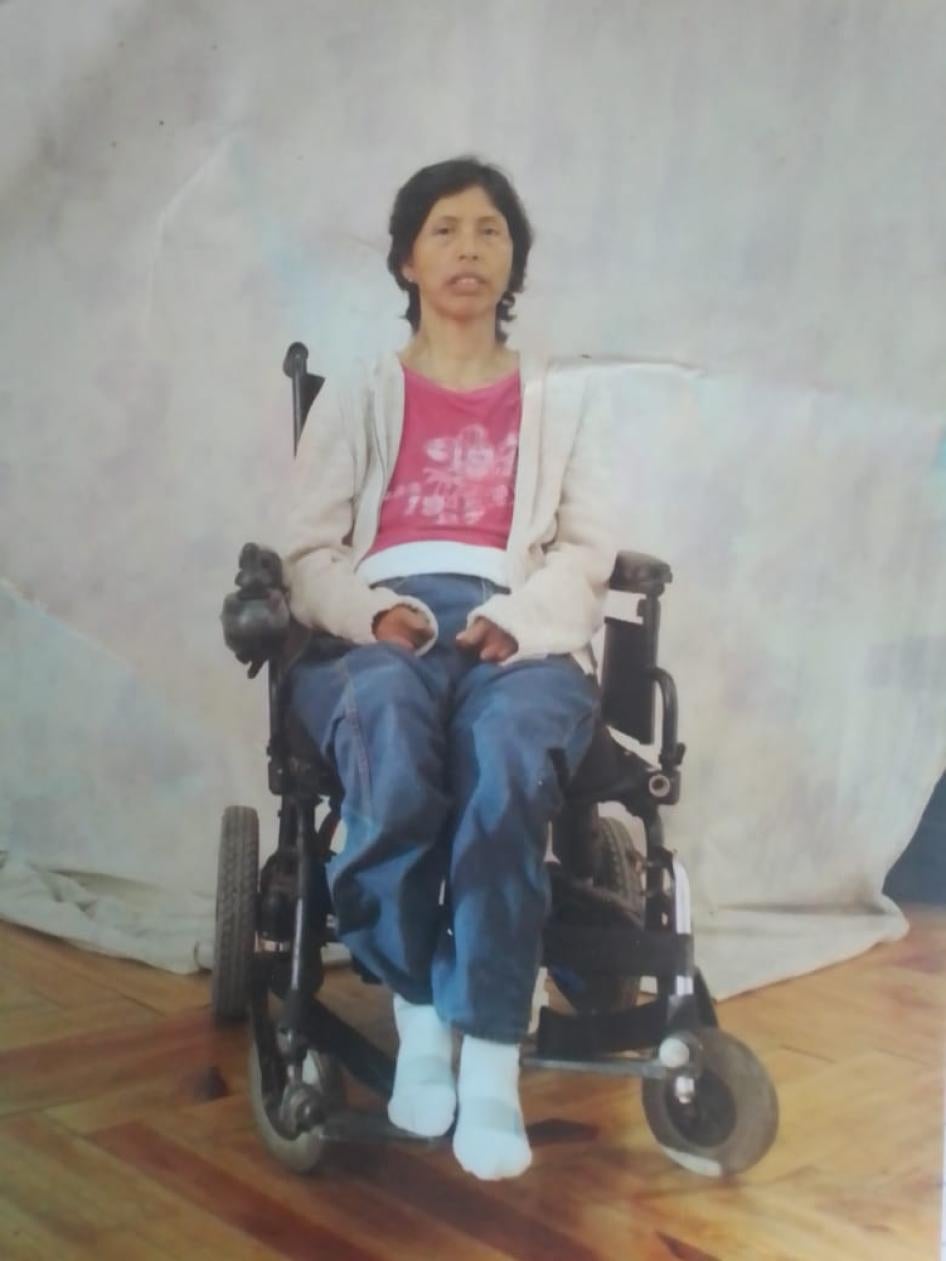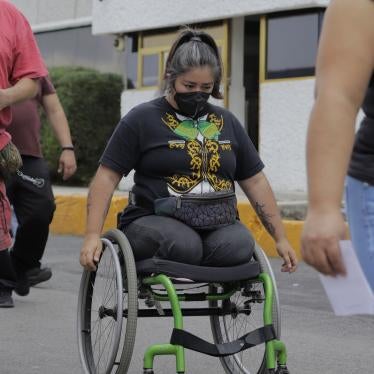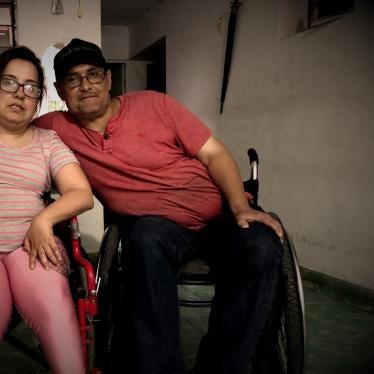Guadalupe Huerta Mora, whom I knew as Lupita, was a generous soul. I met her in September 2010, when colleagues from the disability community brought her situation to my attention. That was three months after Lupita’s sisters-in-law, with her husband’s acquiescence, had beaten her severely, injuring her spine resulting in a physical disability that only allowed her to move her arms and neck slightly.
Her story shocked me so much that when I joined Human Rights Watch, I decided to research violence against people with disabilities in Mexico. Lupita not only contributed her account, but also participated in the report’s virtual news conference on June 4, 2020. Having a physical disability myself, I know how difficult it can be to share personal experiences of discrimination and exclusion. She courageously shared both.
Her ordeal didn’t end with the beating. During her six-month recovery in the hospital, her abusive then-husband legally controlled who could visit her, using this authority to isolate her from her family and friends. To defend herself, she requested emergency protection measures, a legal recourse granted by Mexico’s General Act to Ensure Women a Life Free of Violence (2007). To widespread dismay, the judge denied the request using a formalistic argument that the prosecutor, not the judge, should have issued the measures.
Mexico City’s human rights commission, prosecutor’s office, and former women’s institute at the time stretched their resources to help Lupita. Unfortunately, this was difficult given systemic flaws in Mexico’s policies that made it difficult for people with disabilities to live independently. The government only provides a monthly disability pension of 1475 Mexican pesos (US$82), which she never was able to get despite being eligible.
There are no other services to support people with disabilities to live in the community. They don’t have access to personal assistants or support to get accessible and affordable housing. Soon Lupita’s resources were drained, and she was forced to move back into the house of her husband and sisters-in-law.
Living with her assailants was unbearable. So she took her son, Emanuel, who was 9 years old at the time of her assault, and returned to her hometown of Nahuatzen, Michoacán state. While cheaper than Mexico City, Nahuatzen is very dangerous, with high levels of poverty and violence, and riddled with drug cartels.
Without government or familial support, young Emanuel became responsible for helping his mother out of bed, bathing her, and working so they could survive. After he finished high school, he had to look for a full-time job to support them, which meant Lupita stayed in bed all day because there was no one available to help her into her wheelchair.
Because of her physical disability, Lupita developed kidney stones and bedsores, which are common for people with spinal injuries. To remove the kidney stones, she had to travel to Mexico City, an eight-hour bus ride. Despite the hardship travel represented for her, since 2015 she periodically went to Mexico City to get stones removed. During her last trip, in November 2022, she contracted Covid-19, so the physicians could not perform the procedure and sent her back home. She died from complications of the unremoved kidney stones on February 12, 2023. She was only 58 years old.
Lupita helped me raise awareness about the Mexican government’s failures in preventing violence against women, including by giving numerous interviews to newspapers and other media outlets. Her story helped push Mexico’s national statistics office (INEGI) to gather data about violence against women with disabilities. It wasn’t until recently that the statistics office included this information in their periodic surveys on violence against women. Now we are starting to understand the scale of such abuse: violence against women with disabilities is even higher than for those without.
Mexico’s Congress had started working on reforming existing legislation to include a disability rights perspective. If the reforms become law, protection orders that remove abusers would guarantee that survivors can receive personal assistance, which is important for those who are otherwise forced to depend on their abusers for support.
In November 2021, the Senate approved reforms to ensure that women’s shelters are physically accessible and created new standards to issue protection orders that consider the extra support that some women with disabilities need to escape violence. The reform is stalled because the House of Representatives has been unwilling to provide the supplementary budgetary resources to fully implement the measure.
Despite Lupita’s hardships, I knew how much she enjoyed life, a good laugh, and Mexican food, including regional delicacies from Michoacán, which she’d bring for me and other friends in Mexico City. It pains me that successive Mexican governments failed her, both as a woman and as a woman with a disability. If laws and policies had adequately protected her, she could have remained in Mexico City, living independently and near quality medical care. Perhaps she’d still be alive.
To honor Lupita’s life, Mexico’s House of Representatives should stop dawdling and promptly pass the reforms that would provide the necessary resources to make sure that her experience is not repeated by any more women with disabilities in Mexico.









